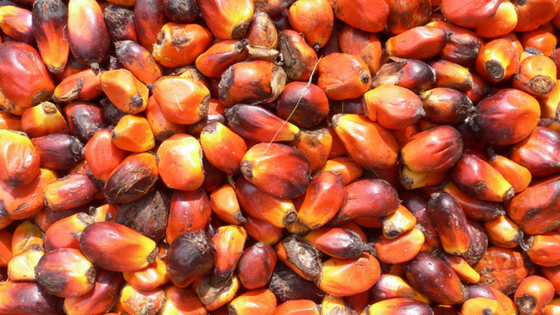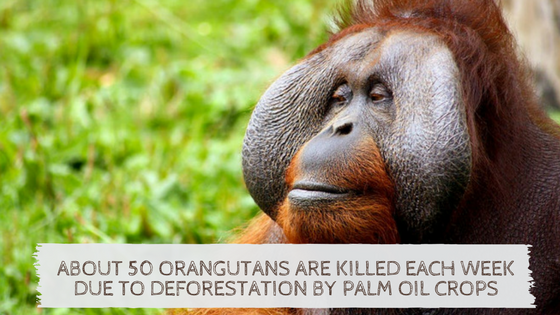
What’s the problem with palm oil?
In a consumer society such as ours, where compulsory buying, accumulation of goods and haste form part of our habitual behavior, there is little room for reflection: Most of us do not consider or ignore the social and economic repercussions of the articles or services we consume.
And related to our consumption habits, one of the biggest ecological and social disasters is happening right now in Indonesia and Malaysia: African palm monoculture from which palm oil is obtained, present in 50% of the articles we find at the supermarket.
The virgin forests of Malaysia and Indonesia are being decimated at an alarming rate due to the increased demand for palm oil. To date, the situation is so drastic that it is estimated that 98% of Indonesia’s forest area will be destroyed before 2022.
Currently, one-third of Indonesia’s mammal species are critically endangered. In addition to animals injured, killed and displaced by habitat loss, palm oil crops and the road network built to facilitate work increase the accessibility of poachers and wildlife traffickers. As major endangered animal species, we speak of the orangutan, the hazy panther of Borneo, gibbons, the Sumatran rhino and the Sumatran tiger. If the rate of deforestation continues, orangutans could become extinct within the next 5-10 years.

However, deforestation entails the displacement of indigenous communities, appropriation of lands belonging to indigenous communities, violations of workers’ rights and child labor. And in addition, processed palm oil is an unhealthy saturated fat that increases the risk of heart disease.
But… Where do we find palm oil?
Palm oil is present in foods (pastries, chocolates, cereals, precooked, margarines, ice cream, pizzas), personal hygiene products (shampoos, cosmetics, toothpaste), cleaning and biofuels.
Unfortunately, palm oil is not always labeled correctly in the listing of ingredients, being shown in an unclear form, such as oil or vegetable fats. By European legislation, all products marketed from December 2014 onwards must indicate the botanical origin of vegetable fats, so that the use of palm oil must be clearly marked on the labeling. We will then have to wait to deplete the products marketed before that date, to know exactly the composition of the products we use.
Therefore, it is urgent to exercise responsible consumption and change our consumption habits, applying our ethical values when making the purchase. It is useless to look the other way or ignore a problem that happens far from home, when we are responsible. It is in our hands, and through small daily actions, to transform ourselves into a more just, sustainable, responsible and empathic society.
By Teresa Sauquet, co-head of the Mona Foundation’s Education Department (MonaEduca).
More Information





